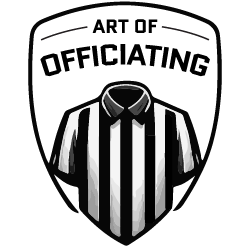There’s nothing more frustrating than hearing an official in the locker room at halftime—or worse, after the game—say, “I thought that was wrong.” At that point, it’s too late. The damage is done. The call, the down, the enforcement, the clock status—it’s in the past and the crew must live with it.
What’s even worse? When an official admits later that he stayed silent because he didn’t want to be wrong. That kind of passivity doesn’t help anyone. In fact, it hurts the crew.
We don’t need Sergeant Schultz from Hogan’s Heroes: “I know nothing, I see nothing, I hear nothing.” We need officials who have the courage to act when their spider sense is tingling.
Administrative mistakes—wrong down, misapplied enforcement, incorrect clock status—are fixable in the moment. Some can be fixed if they are immediately caught. They are not fixable once the game moves down the road.
Crews can survive one official being assertive and wrong. What they can’t survive is everyone being passive and letting a correctable error slide. Silence is far more damaging than speaking up and being mistaken.
Speaking up doesn’t mean giving a speech. It means breaking the silence and ensuring the crew checks the details before the next snap.
It can be as simple as:
“Wait—are we sure this is 3rd down?”
“Hold on—wasn’t that foul beyond the previous spot?”
“Timeout—what’s the clock status here?”
Those short interventions are all it takes. If you’re wrong, no problem, the crew confirms and moves on. If you’re right, you just saved the game from a credibility hit.
Officials, especially newer ones, sometimes hold back because they don’t want to “look bad.” But this is backward thinking.
Looking bad is staying quiet and watching the crew enforce something incorrectly.
Looking professional is speaking up, even if you end up being mistaken.
You don’t need perfect certainty to act. You need confidence in your instincts and trust that your crew values accuracy over silence.
If something doesn’t sit right—say it. Don’t wait until halftime. Don’t wait until the locker room.
Ask yourself: Would I regret not speaking up later? If the answer is yes, then act now.
After the game, debrief not only the calls you made but also the moments when you intervened, or when you should have.
Crews can handle assertiveness. They can sort out wrong information. What they can’t handle is cowardice disguised as caution.
It’s always better to be assertive and wrong than passive and correct.
Quiz
Read the quiz stem and then choose the best answer.
The ball is snapped from the A-40. B77 perfectly anticipates the snap, splits the offensive linemen, grabs quarterback A12 by the side collar of the shoulder pads, and pulls him to the ground.
- Foul for a horse collar tackle
- No foul as A12 was in the free blocking zone when tackled
Review Rules 2-17-1 and 9-4-3k
